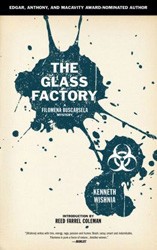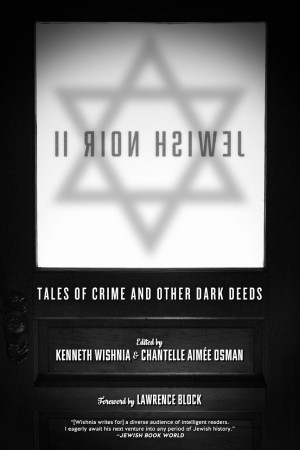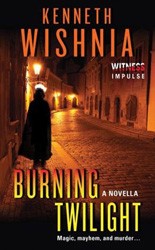The relative quiet enjoyed recently by the Jewish community under the rule of Emperor Rudolph is now threatened. This historical fiction novel is told as a detective story in the voice of Benyamin Ben-Akiva, a young newcomer to Prague’s Jewish community. He is a scholar and shammes (caretaker of a synagogue) working for Rabbi Judah Loew, also known as the legendary Maharal of Prague. The shammes is pressed into immediate service to try to save the community from impending doom. The author takes us inside and out of the Jewish ghetto to find the killer and his reason for the murder. In the process we learn about life in a walled shtetl, the intricacies of preparations for the Sabbath and Passover, relations between the Jews and Gentiles and their ruler, disputes among the Jewish sects, the Papal Inquistitor’s mission to rout out witchcraft and heresy, the study of apothecary, prevalent superstitious beliefs, and the creation of a Golem. The hero of this story attempts to solve the case using extensive Jewish philosophy, Talmudic reasoning, and some chutzpah. Wishnia’s brilliant, intense, and well-researched tale has more than a touch of Yiddish humor, which keeps the reader engaged and thinking about the many intertwined concepts. This is a fast paced story with so much to teach that readers will want to set aside time to fully enjoy The Fifth Servant. Author’s note, bibliography, glossary, map.
Interview
Kenneth Wishnia is a soft spoken guy who is eager to discuss two of his literary creations with me as we sit in his modest office at Suffolk Community College, where he teaches creative writing and literature. 23 Shades of Black, the first book in his crime fiction series, was set in modern day New York City, while his historical fiction debut The Fifth Servant is about a blood libel in 16th century Prague. Wishnia tells me that the writing process for The Fifth Servant was opposite from that of his crime books; 23 Shades of Black has punk rock style, while The Fifth Servant is classical music. But the author reveals similarities between the heroes of his books and injected his own personality into both Filomena Buscarsela, the female Ecuadorian NYPD cop of the crime series and Benyamin Ben-Akiva, the hero of The Fifth Servant. They are clever, witty, cynical outsiders who persevere.Wishnia’s first draft of 23 Shades of Black took six weeks to write, coming to life nearly effortlessly as he “molded the story from the bottom up.” In contrast, The Fifth Servant’s first draft took 2 1⁄2 years to churn out and the author “was carving a large block of marble” as he wrote 14 subsequent drafts. Wishnia is still amazed by his achievement as he shows me a photo of the pile of drafts reaching nearly his own height. He feels that the effort it took to write this book should earn him an honorary doctorate in Renaissance Jewish studies. He credits his friend, award winning author S.J. Rozan (Shanghai Moon), for helping him “find the center and get the voice right” for Benyamin, the witty and chutzpaduk main character.
Wishnia says humor is often used as a coping mechanism but he was surprised he could instill some into this serious story. His book is quite detailed, describing the ambiguity in the business relationships between Christians and Jews, enmity between Catholics and Protestants, and squabbles among the Jewish leaders which is so relevant today. We learn about apothecary, superstitions, heresy, and the torture used as punishment. He refrains from grisly descriptions, preferring to focus on how routinely torture was used then. Wishnia says the only reason to write about historical events is to comment on the present.
Wishnia’s books feature very strong women. He says the men in his book are arrogant, believing they have the sum total of knowledge, while the women admit they are limited by what they see but realize there’s more to learn. He attributes his feminist leanings to his mother, who is a retired associate professor of history at SUNY Stonybrook, and a founder of the Women’s Studies program there. He is married to Mercy, an educator, and fully shares with her the responsibilities of their children and home. When I asked him when he writes, he said other than his sabbatical year, which was a lifesaver for this book, he fits writing in whenever he can, mostly late at night in his home office.
Wishnia grew up in New Hampshire in a secular household. Although his Yiddish speaking grandparents emigrated from Europe, he acquired the wealth of Jewish knowledge exhibited in this book as an adult. Wishnia says he had a “reverse revelation” about Judaism. He read the New Testament when he married his Ecuadorian Catholic wife but realized he already knew a lot of it due to assimilation into Christian culture. He decided to educate himself by reading the Hebrew Bible, then studied Yiddish and became interested in writing a Jewish story. He has read that studying Torah is equivalent to prayer, and feels that by researching this book he has been praying a lot. Wishnia is intrigued by the study of Talmud and its method of “splitting hairs” to discuss every aspect of an issue, where even the smallest minority opinion is stated. He said his biggest challenge was making the dialogue sound natural, so he created Benyamin as one who came to Jewish learning later in life like the author. Wishnia’s enjoyment of Talmud and Midrash is obvious from his many references from those sources. He hopes to reach a diverse audience of intelligent readers. Although he won’t be writing a sequel, he hints that the next book may delve into ancient Jewish history. I predict a bright future for Kenneth Wishnia, filled with loyal readers who enjoy a serious and entertaining story. I enjoyed learning so much from The Fifth Servant and eagerly await his next venture into any period of Jewish history.
Miriam Bradman Abrahams, mom, grandmom, avid reader, sometime writer, born in Havana, raised in Brooklyn, residing in Long Beach on Long Island. Longtime former One Region One Book chair and JBC liaison for Nassau Hadassah, currently presenting Incident at San Miguel with author AJ Sidransky who wrote the historical fiction based on her Cuban Jewish refugee family’s experiences during the revolution. Fluent in Spanish and Hebrew, certified hatha yoga instructor.





